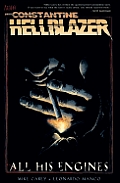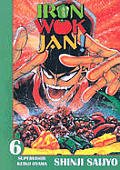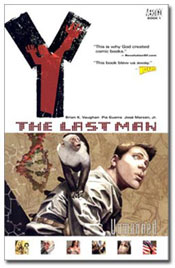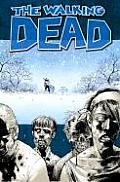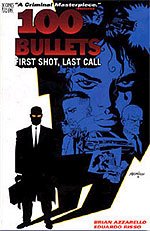 Incognegro
Incognegro written by Mat Johnson, art by Warren Pleece
"Race is a strategy. The rest is just people acting playing roles."-- Incognegro
Near the beginning of
Incognegro, the protagonist Zane Pinchback is arguing with his editor at the
New Holland Herald. It's the height of the Harlem Renaissance, and Zane is itching to cover art and culture, and maybe turn out a little of his own. And he'd like, for once, to publish something under his real name.
As things are, Zane's name and face have to remain hidden from readers, who know him only as Incognegro, a light-skinned black man who uses his ability to "pass" to investigate lynchings in the South.
In the book's opening panels, we see Zane at a lynching he's powerless to stop. Instead, he walks poker-faced down the line of men waiting for their souvenir postcards of the murder, taking names and addresses. When his cover is blown, he narrowly escapes with his life, and returns to his newspaper determined never to return to the South again.
But then his editor confronts him with a news story off the wire -- Zane's brother, Alonzo, is being held in a Tupelo jail for the murder of a white woman. And Zane knows he'll have to go undercover once more, and this time he knows he has to bring back more than a list of names.
As Zane stands before a mirror, straightening his hair and making a few subtle alterations to his appearance, he says, "My camouflage is provided by my genes; the product of the southern tradition nobody likes to talk about. Slavery, rape, hypocrisy... Since white America refused to see its past, they can't really see me too well, either. Add to that a little touch of Madame C.J.'s magic and watch me go invisible. Watch me step outside of history. Assimilation as revolution."
It's a testament both to Johnson's writing, and to Pleece's evocative illustrations that meditations like these fit seamlessly into a heavily action-driven book.
Zane's friend, Carl, a fast-talking gambler with a flair for theatrics, insists on coming to Tupelo with him, and isn't prepared for what the Jim Crow South holds. However, while Zane is subtle in making his plots, Carl poses as an Englishman looking to buy land, and quickly makes connections among the town's residents, despite Zane's warnings to keep a low profile.
Gradually, the two begin to piece the case together -- Alonzo's bootlegging operation with a white woman, their secret relationship, Alonzo found kneeling by her mutilated body in the woods. But that doesn't even scratch the surface of things.
Zane has to navigate a landscape of Klansmen and hill people, where even the whites who fall outside the boundaries of "racism as the norm" have their own self-interested motivations for wanting to see the case disappear.
Incognegro succeeds on many levels -- as a work of accurately detailed historical fiction, as an examination of race and identity in the United States, and as a hard-boiled sleuthing story. Pleece's black and white illustrations are rich and precise, capturing the noirish feel of the book, while capturing subtle characterizations.
In an author's note, Johnson describes his inspiration for the book as growing up "a black boy who looked white." He and his half black, half Jewish cousin played games as children where they pretended "to be race spies in the war against white supremacy." Then, in college, Johnson learned about Walter White, a former leader of the NAACP, who posed as a white man to investigate lynchings in the South. Johnson writes, "It was as if my little childhood fantasy had come to life."
Check out the recent interview with Johnson at
Racialicious, where he discusses the possibility of a film adaptation, cultural amnesia, and why
Incognegro is not a "tragic mulatto" story.

















